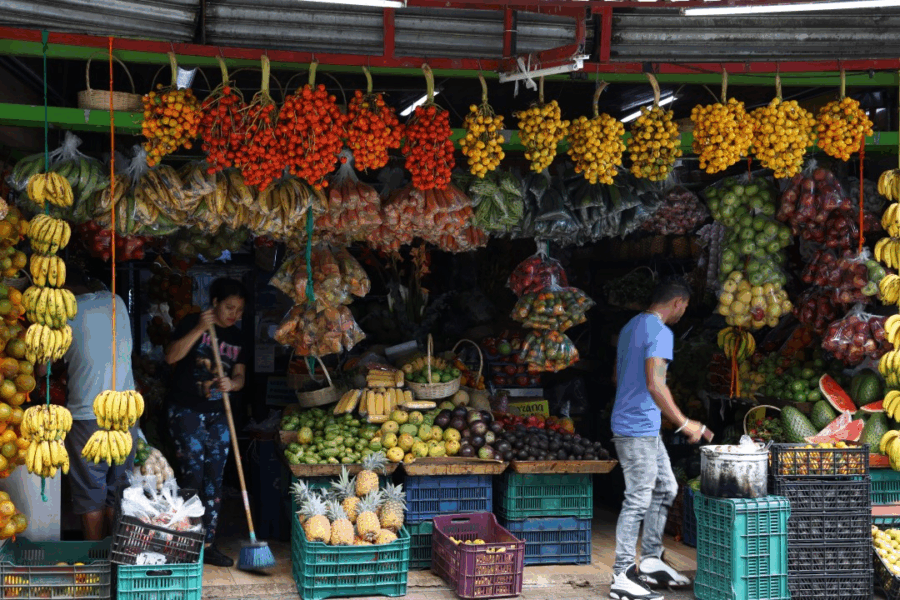The European Union (EU) has reaffirmed its commitment to strengthening economic ties with Zimbabwe by maintaining duty-free and quota-free access for Zimbabwean exports to the EU market. This initiative, part of the EU–Eastern and Southern Africa interim Economic Partnership Agreement (iEPA), is designed to boost Zimbabwe’s trade capabilities and support the growth of micro, small, and medium-sized enterprises (MSMEs).

Key Benefits of the EU-Zimbabwe Trade Agreement
Unrestricted Market Access
Zimbabwean exporters can now access all 27 EU member states without facing tariffs or quotas—offering a competitive edge in a market of over 450 million consumers.
Support for MSMEs
The EU is investing €5 million in grant funding to enhance the capabilities of Zimbabwean MSMEs. This funding will help improve business management, access to finance, technology adoption, and export development.
Infrastructure and Investment
An additional €90 million in lending facilities and trade finance—along with a €60 million loan program from the European Investment Bank—is being directed toward strengthening Zimbabwe’s private sector and promoting sustainable investment.
Why Is the EU Investing in Zimbabwe?
Despite its appearance as generous aid, the EU’s investment is deeply strategic. Here’s how Europe stands to benefit:
1. Securing Trade Access and Resources
Zimbabwe is rich in critical resources—lithium, platinum, and gold—essential to Europe’s green energy transition. By supporting Zimbabwean small businesses and maintaining favorable trade terms, the EU ensures a steady, privileged flow of these raw materials.
2. Maintaining Geopolitical Influence
With China, Russia, and the U.S. expanding their presence in Africa, the EU is leveraging development aid to retain political influence. Grants, loans, and open trade become tools for shaping regional policy and preserving European strategic interests.
3. Creating Future Markets
A stronger Zimbabwean economy means more consumers. As small businesses grow and the middle class expands, so does the potential for European exports—from technology to pharmaceuticals and luxury goods.
4. Controlling Migration
Economic instability is a key driver of migration from Africa to Europe. By investing in local job creation and development, the EU addresses these “push factors” and aims to reduce migration pressure at its borders.
How the EU Has Historically Profited
1. Trade Imbalances
Even with duty-free trade, the relationship is unequal. Africa often exports raw materials at low prices while importing high-value processed goods from Europe—creating a trade imbalance that heavily favors the EU.
2. Debt and Financial Leverage
Much of the EU’s financial aid includes strings attached—like requiring African governments to hire EU companies or consultants. This “tied aid” ensures much of the money circulates back into European hands.
3. Long-Term Access to Raw Materials
Investments in infrastructure and local businesses help the EU lock in long-term supply agreements—especially in essential resources like lithium, used in electric vehicle batteries and tech manufacturing.
4. Market Expansion for EU Businesses
European banks, food brands, and insurance firms gain access to new markets under the umbrella of development support—often building early loyalty with future customers.
In short, the EU’s investments aren’t just about goodwill—they’re about smart, long-term gain.
Economic Impact on Zimbabwe
These initiatives are expected to benefit several sectors of Zimbabwe’s economy:
Agriculture
More than 40% of Zimbabwe’s horticultural exports—including citrus and berries—already head to the EU. Duty-free access is expected to grow this figure further.
Manufacturing and Agro-processing
Tariff-free imports of EU machinery are set to improve efficiency across local industries and boost value-added production.
Renewable Energy
The EU’s focus on solar and wind power—combined with Zimbabwe’s tax incentives—could help address chronic energy shortages.
Support for Women-led Businesses
Gender equality is another focus. Women-led MSMEs stand to gain from reduced costs and easier access to capital through low-interest loans distributed via European Investment Bank credit lines to local banks.
The Bottom Line
The EU frames its engagement with Zimbabwe as “mutual development”—but it’s also self-interested. Here’s what the EU gains:
- Long-term access to vital resources
- Political and economic influence in Southern Africa
- Growing consumer markets for EU goods
- Reduced migration flows
- A counterbalance to Chinese expansion on the continent
Zimbabwe benefits from infrastructure, investment, and new trade opportunities—but the EU has ensured it walks away with the biggest win. As Zimbabwean entrepreneurs seize these resources to scale their businesses, the country has a chance to redefine the terms of engagement and move from dependent to empowered.
For more information on the EU’s support for MSMEs in Zimbabwe, visit the European External Action Service.
Follow MEFeater on Twitter, Instagram, Facebook, and Pinterest for more news and updates.